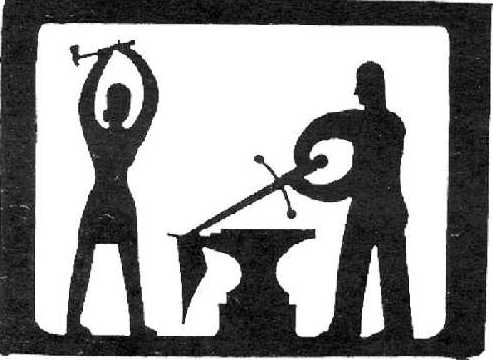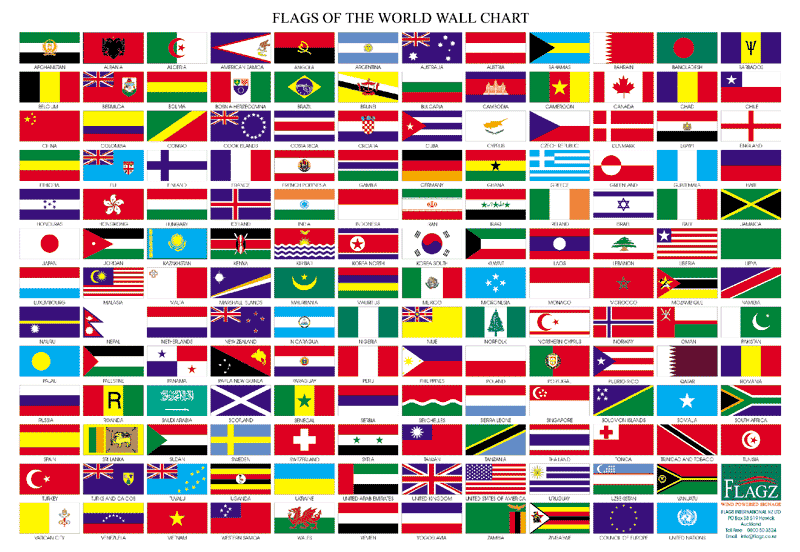War No More
For Sunday November 28, 2004
First Sunday of Advent
Lectionary Readings (Revised Common Lectionary, Year A)
Isaiah 2:1–5
Psalm 122
Romans 13:11–14
Matthew 24:36–44
 Next Sunday Christians around the world enter the season of Advent, a time when we prepare to commemorate the adventus of Jesus — his coming, arrival, or birth into our world. Some time around the sixth century the tradition emerged to set aside four weeks before Christmas, beginning with the Sunday closest to Saint Andrew's Day (November 30), as a period to look both backwards and forwards. Believers look backwards in celebration of the birth of Christ, to that time when we believe that in Christ God inaugurated his kingdom here on earth in some special way. We look foward in longing and expectation to his coming again, to that time when we believe that God will culminate what He has now only inaugurated, when He will finish what He has started. During Advent, then, believers celebrate the past and anticipate the future.
Next Sunday Christians around the world enter the season of Advent, a time when we prepare to commemorate the adventus of Jesus — his coming, arrival, or birth into our world. Some time around the sixth century the tradition emerged to set aside four weeks before Christmas, beginning with the Sunday closest to Saint Andrew's Day (November 30), as a period to look both backwards and forwards. Believers look backwards in celebration of the birth of Christ, to that time when we believe that in Christ God inaugurated his kingdom here on earth in some special way. We look foward in longing and expectation to his coming again, to that time when we believe that God will culminate what He has now only inaugurated, when He will finish what He has started. During Advent, then, believers celebrate the past and anticipate the future.
The reading from the Hebrew prophet Isaiah for this week includes some of the most familiar and provocative words in all of Scripture. They draw our attention entirely to future expectation.
This is what Isaiah son of Amoz saw concerning Judah and Jerusalem: In the last days
the mountain of the Lord's temple will be established as chief among the mountains;
it will be raised above the hills,
and all nations will stream to it.
Many peoples will come and say,
"Come, let us go up to the mountain of the Lord,
to the house of the God of Jacob.
He will teach us his ways,
so that we may walk in his paths."
The law will go out from Zion,
the word of the Lord from Jerusalem.
He will judge between the nations
and will settle disputes for many peoples.
They will beat their swords into plowshares
and their spears into pruning hooks.
Nation will not take up sword against nation,
nor will they train for war anymore.
For Isaiah, human history is headed somewhere; it is not drifting nowhere in some aimless and chaotic fashion. He imagines history more like a line that has purpose and direction, rather than as a circle that merely repeats itself.
Given Judaism's radical monotheism (similar to Islam and Christianity at least in this respect), Isaiah's vision of the "final future" is extraordinarily inclusive and global. He envisions a day when "all the nations" and "many peoples" will enter into Yahweh's shalom. Here the geo-political borders of God's kingdom know no boundaries. Long after Isaiah, the first Christians employed a similarly comprehensive ethnography to describe heaven; they pictured it as containing "a great multitude that no one could count, from every nation, tribe, people and language" (Revelation 7:9). So-called "multiethnicity" might be a politically-correct lightening rod these days, attracting about equal numbers of defenders and detractors, but in the Jewish and Christian vision of humanity's final history, myopic ethnocentricity has no place. Rather, "all the nations" will celebrate together.
Patriotism comes in a number of versions, many of which are admirable. People rightly love their unique ethnic roots, foods, history, language, culture, music, etc. Homesickness is a compliment to the sights, sounds and smells which we ought to love and miss when we are separated from them. Everyone ought also to celebrate the special heritage in history that their people have contributed to the world. But there is also a pernicious patriotism that believes, as CS Lewis observed, that my nation is "markedly superior to all others." Lewis once encountered a pastor who espoused this virulent nationalism, and asked him, "doesn't every nation think of itself as the best?" The clergyman responded in all seriousness, "Yes, but in England it is true." Lewis concludes, "To be sure, this conviction had not made my friend (God rest his soul) a villain; only an extremely lovable old ass. It can however produce asses that kick and bite. On the lunatic fringe it may shade off into that popular Racialism which Christianity and science equally forbid."1 Isaiah's description of humanity's destiny implies that believers care as much about every country and people as they do their own, and consequently that patriotism can at best be only a penultimate virtue.
The most familiar aspect of Isaiah's vision of the future advent of God's kingdom is that it will be a place where international disputes have been settled, war is a thing of the past, and people transform their weapons of death and destruction into instruments of peace and prosperity.
The United States is the wealthiest and most generous nation in the world. It is also the most militaristic country on the planet. According to the Center for Defense Information, our military budget of roughly $400 billion is larger than the military budgets of the next twenty-one countries combined. We spend more than six times as much as Russia ($65 billion) and more than eight times what China spends ($47 billion).2 We are far and away the largest supplier in the world arms trade, and our special forces conduct thousands of operations every year in 170 countries. All who care about and long for Isaiah's future without war should work for it in the present. That Christians would ever, in any way, glorify war is abhorent.
Finally, Isaiah admits that his vision is for what he calls "the last days." That feels like a monumental understatement; it has been 2700 years since his beautiful poetry made such bold predictions. Pagans scoffed at the early Christians for their hope in the second coming of Christ: "Where is this 'coming' he promised? Ever since our fathers died, everything goes on as it has since the beginning of creation" (2 Peter 3:4). True enough. Further, when fringe preachers make ridiculous claims about the rapture and the second coming, at least some of this disparagement is deserved.
About Isaiah's "last days" every person can be absolutely certain of three scenarios. What we might call our Personal End will come for each one of us in less than 100 years, and for most of us far sooner. The Earth's End is just as certain, but will take longer. My friend and solar physicist Charles advises me that in about 5 billion years the sun will expand to 10,000,000 times its present volume, a red giant that will scorch and eventually swallow the Earth. Third, as for the Cosmic End of the entire universe, physicists are divided, but equally bleak. If the expansion of the Big Bang continues to propel everything outward, our galaxies will fly apart forever, although individual galaxies will collapse into black holes. On the other hand, if the forces of gravity prevail, the expanding universe will eventually reverse its expansion and collapse into a Big Crunch. "It is as sure as can be," writes physicist John Polkinghorne, "that humanity, and all forms of carbon-based life, will prove a transient episode in the history of the cosmos."3 As if this is not depressing enough, our own human failures could end everything much sooner.
Then what? Our Personal End or the Cosmic End each result in one of two things, either absolute nothingness, or something akin to Isaiah's vision. If our future end is the former, then nihilism is an understandable way to live today. But if Isaiah is correct, and I put my faith in his scenario, we are encouraged to live and work today to usher in a contemporary presence of the future, right here and now.
We don't know, cannot know, and don't even need to know the details of Isaiah's "last days." Lewis likens us to actors in a very real drama. We do not know everything about the play, whether we are in the first or last act, or even which characters play the minor and major roles. In our ignorance, we really have no idea when the End of the play ought to come. The plot will find fulfillment, even if our limited understanding right now obscures it. Perhaps the Author will fill us in after it is over, but for now, "playing it well is what matters infinitely."4
So, Advent calls us to wait and work. In the Christian scheme of history Isaiah's Age to Come began with the first advent of Jesus; it will culminate with his second advent. For now, we live "between the times" of the two advents. We do so with patience, patience being the stubborn refusal to accept the status quo, and the realization that God works on His own schedule. Our patience is invigorated by confidence that the Author of our human drama now woos "all the nations" to the glorious future predicted by Isaiah long ago.

[1] CS Lewis, The Joyful Christian (NY: Macmillan, 1977), p. 189.
[2] www.cdi.org/budget/2004/world-military-spending.cfm.
[3] John Polkinghorne, Beyond Science; The Wider Human Context (Cambridge: Cambridge University Press, 1996), p. 96.
[4] Lewis, ibid., p. 71.





